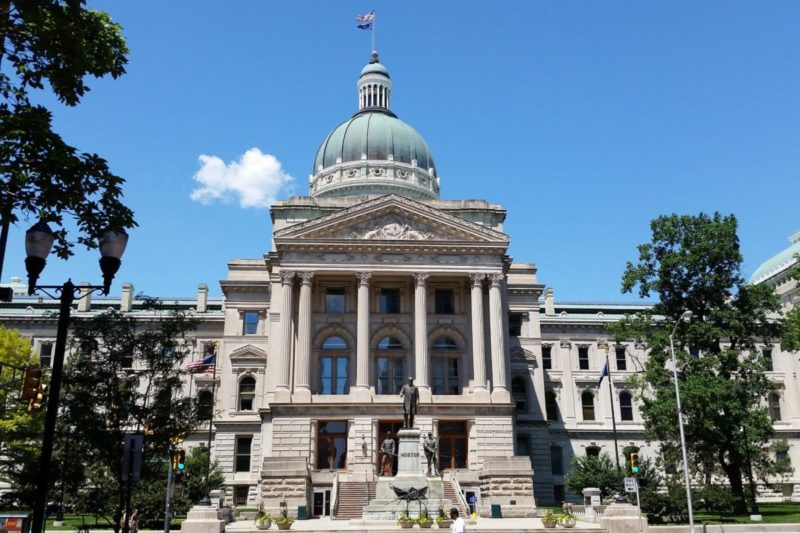ACLU of Indiana Sues State Health Department, County Prosecutors Over Ultrasound Law
The official digest language for the law says that pregnant patients considering an abortion “must be given the opportunity to view the fetal ultrasound imaging and hear the auscultation of the fetal heart tone” at least 18 hours before an abortion.

The American Civil Liberties Union (ACLU) and Planned Parenthood joined forces again on Thursday to challenge an anti-choice law that the organizations say will prove burdensome for reproductive clinics and their patients alike in Indiana.
The two parties filed a lawsuit on behalf of Planned Parenthood of Indiana and Kentucky in the U.S. District Court for the Southern District of Indiana to challenge a provision of the omnibus HEA 1337, which requires an ultrasound at least 18 hours before an abortion procedure.
The official digest language for the law says that pregnant patients considering an abortion “must be given the opportunity to view the fetal ultrasound imaging and hear the auscultation of the fetal heart tone” at least 18 hours before an abortion. At the same time, the clinic must obtain the state-required “informed consent.”
The provision went into effect July 1. Prior to its enactment, Indiana law required an ultrasound but did not mandate the time at which the imaging had to be provided. As such, clinics typically performed ultrasounds right before the procedure.
The plaintiffs claim the new law would require many patients to make two lengthy trips to obtain an abortion or pay for an overnight stay in order to receive care. This, Planned Parenthood officials said, would also burden its majority low-income clientele by causing them to lose at least a day of wages and by potentially requiring them to arrange special child care.
The law, the plaintiffs argue, would also cause clinics to become more crowded, delaying abortions to the point where some patients may not be able to receive care within Indiana’s legal limits. Indiana bans abortions after 20 weeks except when the pregnant person’s life is in danger.
Betty Cockrum, president and chief executive of Planned Parenthood of Indiana and Kentucky, told the Indiana News Service the Supreme Court’s recent ruling against Texas’s omnibus anti-abortion bill, HB 2, opened the door for the organization to seek further review of Indiana’s laws.
In an official statement, Cockrum said the 18-hour ultrasound requirement was “unduly burdensome” and added no value to the state’s already restrictive abortion policies.
The 10-page lawsuit, which argues that there is no medical justification for an ultrasound 18 hours before an abortion, lists Indiana State Department of Health Commissioner Dr. Jerome Adams and the prosecutors of Marion, Lake, Monroe, and Tippecanoe Counties as defendants.
As commissioner, Adams is the “duly appointed official” in charge of the agency responsible for licensing abortion clinics pursuant to Indiana law, the suit explains.
Similarly, the prosecutors of the four counties listed in the lawsuit, help enforce the laws that the four Planned Parenthood clinics that provide abortion care in Indiana must adhere to.
While Planned Parenthood has 23 health centers throughout the state, it only provides abortions in Bloomington, Merrillville, Indianapolis, and Lafayette.
Thursday’s lawsuit is the second legal action Planned Parenthood has taken against Indiana officials in recent weeks to challenge laws the health-care provider says could make securing abortion care cumbersome or impossible for state residents.
On June 30, a federal judge granted a preliminary injunction to block several provisions in HEA 1337 that would have kept a pregnant person from terminating a pregnancy when an abnormality, such as a life-threatening disability, is present in the fetus.
The lawsuit filed Thursday asks for the law to be blocked during the trial and until the court makes a decision, a declaration that the ultrasound provision is unconstitutional, and an monetary award for the plaintiff’s attorney fees.

